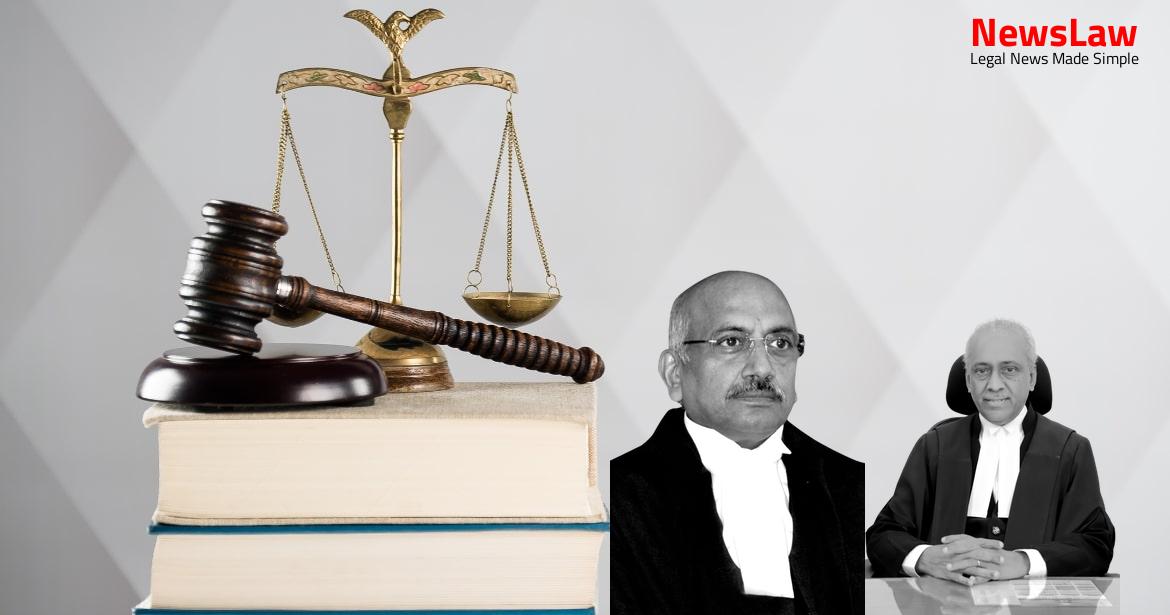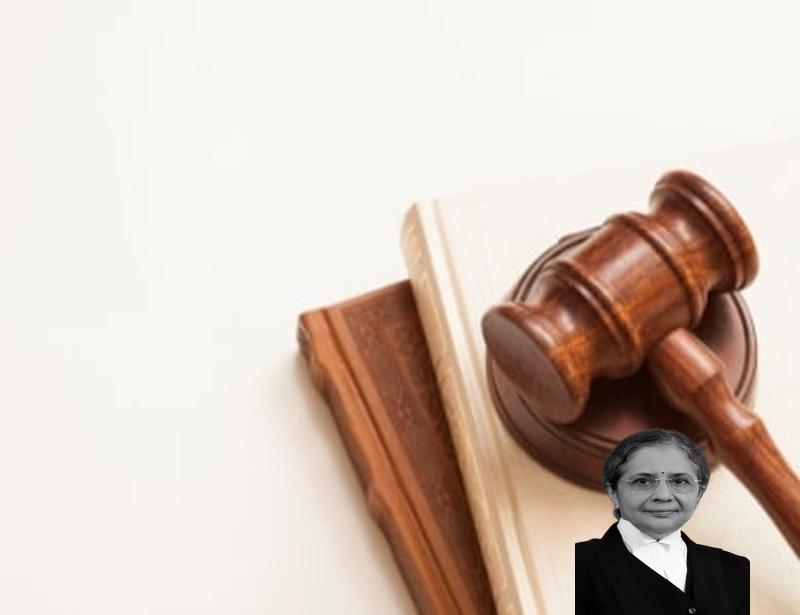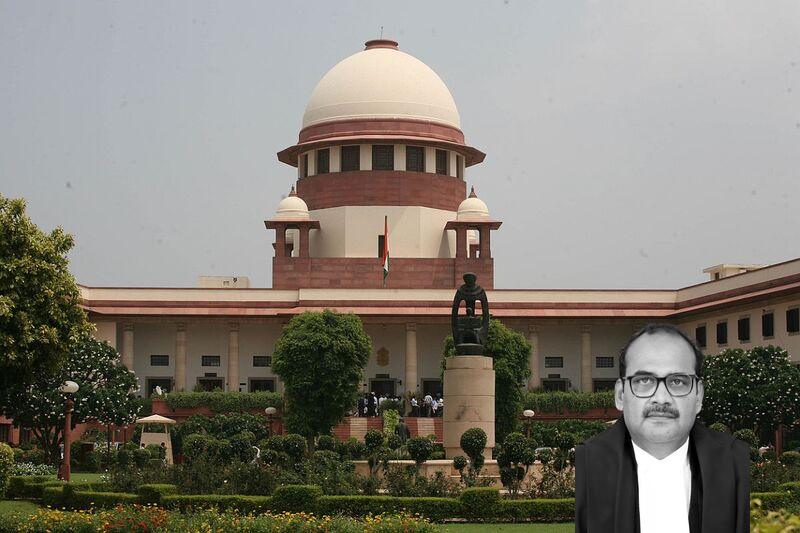Delve into the detailed legal analysis conducted by the court regarding the Government’s accommodation policy for retired Kashmiri migrants. The examination focuses on the constitutional validity and practical implications of the scheme, offering valuable insights into the complex legal aspects involved in the case.
Facts
- Direction given to Central Government to frame a rehabilitation scheme for retired employees like the respondents
- Policy circulated via Office Memorandum on 28.3.2017 as per Delhi High Court directions
- Scheme initially restricted to Kashmiri migrants litigants, but later modified to include all retired Central Government employees from Jammu & Kashmir
- No further action/direction required after acceptance of the Scheme
- Writ petitions filed in 1995 were decided by the Single Bench and occupants appealed, but were dismissed
- Rehabilitation Scheme prepared and placed on record after 12 years of pending matter
- The applicants in possession of government accommodation in Delhi and/or National Capital Region have filed applications as per the policy framed by the Central Government on 28.3.2017, modified on 19.5.2017.
Also Read: Interpretation of Will and Hindu Succession Act: Legal Analysis
Arguments
- Scheme framed for humanitarian approach to problems faced by Kashmiri Migrants.
- Written submissions mention 80 Kashmiri Migrants in Govt. accommodation in Delhi and 3 in Faridabad.
- 31 Kashmiri Migrants given protection in J.L. Koul; argued for similar protection for 54 more.
- Admitted that some migrants retired in recent years.
- Arguments by Mr. Bimal Roy Jad on Court’s directions regarding Kashmiri Migrants as victims of terrorism.
- Transit accommodation not available; Kashmiri Migrants treated as a different class due to peculiar hardships faced.
- References to judgments like Lok Prahari, S.D. Bandi, Shiv Sagar Tiwari deemed not applicable to displaced Kashmiri Migrants.
- The argument put forth by the Respondent, Mr. Jad, highlighted that benefits provided to prominent public figures in previous cases should not be applicable to the present applicants who are victims of terrorism.
- It was mentioned that nearly 3800 persons have returned to the Kashmir Valley in recent years to avail the PM package jobs, with cash relief also being provided.
- Various components of the policies for Kashmiri Migrants included financial assistance for repairing fully or partially damaged houses, assistance for dilapidated/unused houses, and assistance for purchasing/construction of houses in group housing societies.
- Government employment has been provided to nearly 3800 Kashmiri Migrants under the Rehabilitation Package.
- In the case of transit accommodation, it was noted that 520 migrants have returned to Kashmir for jobs post the abrogation of Article 370.
- Mr. Jad argued for extending similar accommodation benefits to other migrants in Delhi/National Capital Region, as retired occupants are still in government accommodation.
- It was mentioned that another approximately 2000 migrants are expected to return under the same policy in the year 2021.
- The appellants in the case were allotted residential accommodation in Jammu in 1989-1990 as government servants.
- Ms. Madhavi Divan, representing the government, highlighted the various benefits provided to Kashmiri Migrants, including financial assistance, job opportunities, and ration support.
- With the abrogation of Article 370, Kashmiri Migrants have started returning to the Kashmir Valley as per the arguments presented.
- The Parliament was informed about the policies devised for the Return and Rehabilitation of Kashmiri Migrants under the Prime Minister’s Packages in 2008 and 2015.
Also Read: Analysis of High Court’s Decision on Registration Certificate and Onus of Proof in Sales Tax Case
Analysis
- Kashmiri Pandits were to be accommodated in Delhi for the first five years post-retirement and then shifted to the National Capital Region as per the Scheme.
- The classification in favor of Kashmiri Migrant Government employees aligns with other Government employees, and no modification to the order dated 5.8.2021 is deemed necessary.
- The Court expressed a ‘pious hope’ for the State to rehabilitate those affected by terrorism until appropriate accommodations are provided.
- The decision in J.L. Koul was not under Article 142 of the Constitution but was based on a Rehabilitation Scheme presented by the Chief Secretary of the State.
- Former Government employees, including Kashmiri Migrants, are entitled to pension benefits post-retirement but are not entitled to indefinite government accommodation.
- The Office Memorandum allowing retired Government employees who are Kashmiri Migrants to occupy government accommodation does not meet the criteria of Article 14 of the Constitution.
- The basis of the Office Memorandum’s issuance falls flat as it was in compliance with a High Court directive not approved by the Supreme Court.
- The Rehabilitation Package approved by the Court entails cash compensation if transit accommodations are unavailable.
- Compassion towards Kashmiri Migrants cannot be extended indefinitely and must be balanced with the needs of serving officers.
- The Government accommodation is intended for serving officers and cannot be utilized indefinitely by retired Government employees or their spouses.
- Government employees who are Kashmiri Migrants cannot retain government accommodation for more than three years after retirement.
- The three-year period also serves as a cooling off period for officers involved in active intelligence work.
- Working for an intelligence agency is not a valid reason to occupy government accommodation indefinitely.
- Kashmiri Migrants can have government accommodation for three years post-retirement to make alternative arrangements.
- If alternative accommodation is not available, they can move to transit accommodation or opt for a cash amount in lieu of transit accommodation.
Also Read: Legal Analysis of Domestic Inquiry and Misconduct in Employment Case
Decision
- The present applications have no merit and are dismissed.
- Time granted to Omkar Nath Dhar, now deceased, to vacate the premises is extended until 30.11.2021.
- Union given liberty to file an application for modification of the order concerning the 31 retirees covered by the judgment in J.L. Koul.
- Action taken report by the Union must be filed by 15.12.2021.
Case Title: UNION OF INDIA THROUGH DIRECTOR OF ESTATES Vs. ONKAR NATH DHAR (OMKAR NATH DHAR) (DEAD) THR. LR. (2021 INSC 633)
Case Number: MA-001468 / 2021



